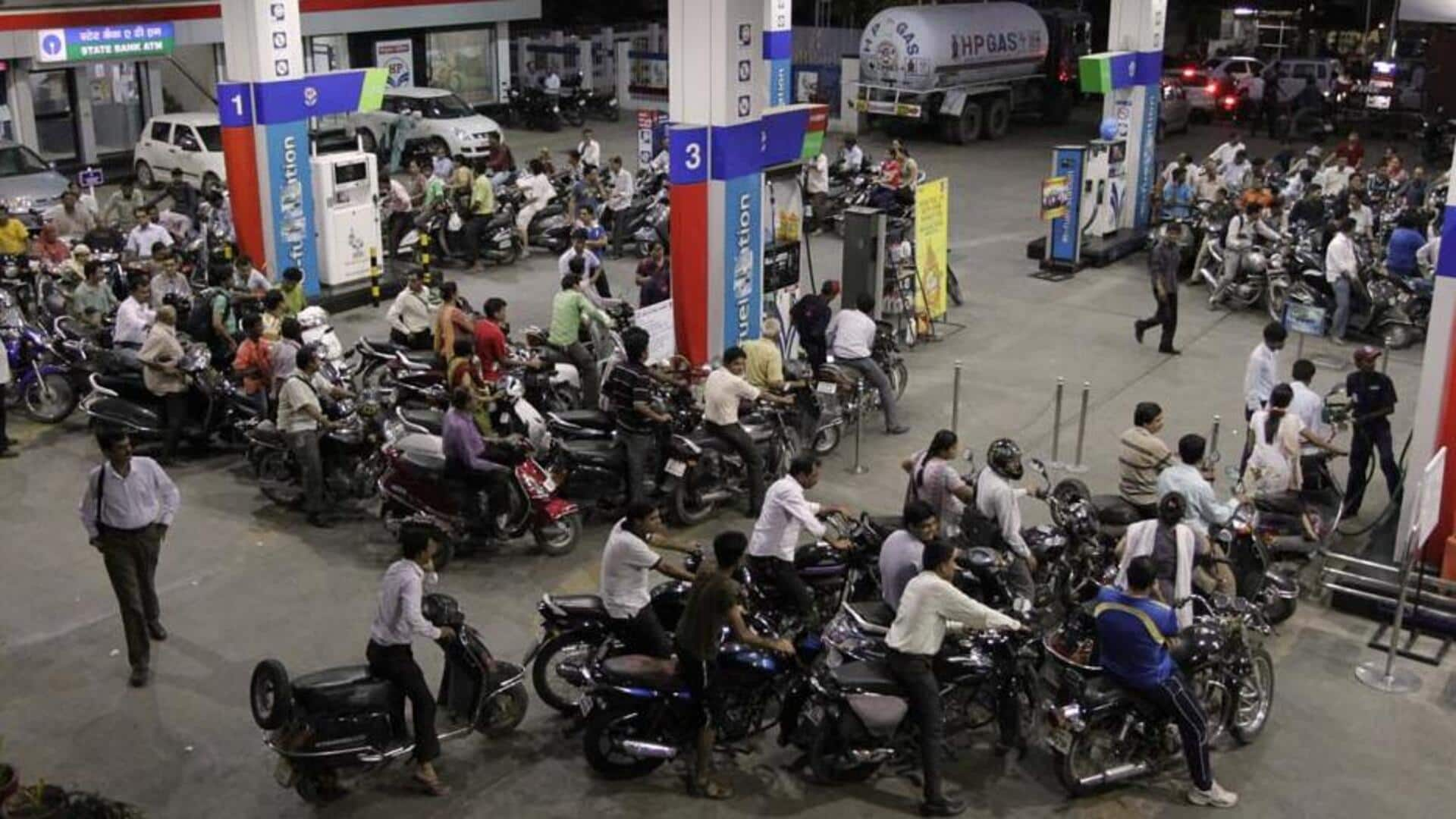
Long queues at petrol pumps across India: Here's why
What's the story
Truck drivers and fuel transporters in states like Maharashtra, Madhya Pradesh, Himachal Pradesh, and Chhattisgarh are protesting the country's new criminal code, the Bharatiya Nyaya Sanhita (BNS). The law has increased jail terms for hit-and-run cases in India, which has triggered protests. These protests have caused road blockades and fuel supply disruptions, leading to long lines at petrol pumps and concerns about the availability of petrol, diesel, and LPG cylinders.
Details
What does the new law entail?
The BNS states that drivers who cause severe accidents due to negligent driving and leave the scene without informing the police can face up to 10 years in prison or a Rs. 7 lakh fine. This is a significant increase from the previous two-year punishment under the previous Indian Penal Code (IPC). The BNS was passed during the Winter Session of the Parliament, along with other legislation overhauling India's criminal justice system.
What Next?
Drivers' concerns and nationwide protests
Drivers argue that accidents are not intentional, and those who cause accidents often flee due to angry mobs threatening their lives. They believe the new provisions will discourage drivers and create fear about their jobs. Drivers also mention that certain factors beyond their control, like poor visibility due to fog, could lead to accidents and their unjust imprisonment. Protests have disrupted transportation systems, leaving passengers stranded in several cities.
Insights
Government response and ongoing agitation
Meanwhile, Madhya Pradesh's Transport Minister Uday Pratap Singh has encouraged protesting drivers to discuss the problem with the government. He stated that enacting a law does not imply it was made to take penal action against them. Despite this appeal, protests continue, with people rushing to petrol stations fearing fuel shortages. In Maharashtra's Nashik district, fuel stations may run dry if the agitation persists, as dealers are not being allowed to fill their tankers.